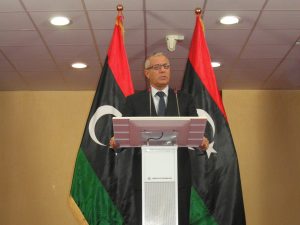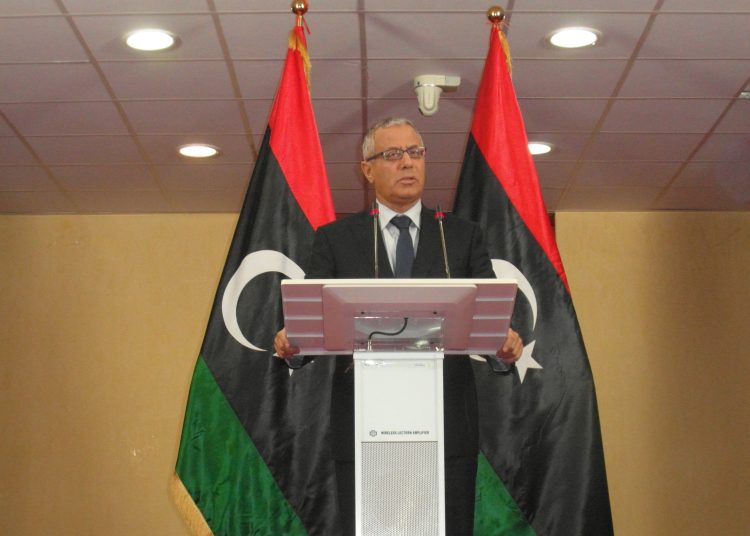By Sami Zaptia.

Tripoli, 19 January:
Prime Minister Ali Zeidan has said that health treatement for Libyans abroad will resume shortly.
Zeidan revealed that . . .[restrict]the government had started reviewing overseas health checks, but stressed that if and when overseas health treatment resumes it would be on the basis of strict spending controls.
He explained that Libyan consulates were reviewing procedures and that this process may take some time.
The Prime Minister did not explain whether this health treatment was strictly for the remaining war injured or for the population at large.
During and shortly post-conflict, there was huge demand on the then-weak Libyan state for many fighters to go abroad to seek treatment for their war wounds. This right was quickly abused, with many fighters taking friends, family or relatives with them for free health treatment, totally unrelated to war injuries. At the time the NTC under Mustafa Abduljalil was powerless to control the fighters.
There were stories of fighters arranging for relatives or associates to have beauty and infertility treatments, appendectomies and other operations. Many also took whole families as chaperones for months, demanding, and getting free accommodation and spending money.
Some clinics and hospitals colluded with corrupt fighters, inflating bills and sharing the spoils with the Libyans.
The costs soon spiraled into the billions of dollars as the Libyan state struggled to pay debts in hospitals in Tunisia and Jordan, amongst other countries.
Under Health Minister Fatma Hamroush, an attempt was made to end the abuse of overseas health treatment for the thuwar. Hamroush was threatened with violence on more than one occasion.
Health treatment abroad has been a very sensitive subject in Libya for years, if not decades, well before the Revolution and the treatment of the war injured.
Initially under the previous regime treatment abroad was open to all Libyans for most conditions. This was soon tightened up for a list for specific medical conditions that were deemed were untreatable locally.
Very quickly, however, treatment abroad was abused and became a corrupt and lucrative business practice. The bills for the Libyan state started to mount, with only the elite of the former regime able to occupy beds for months in Europe’s most expensive private clinics.
Their relatives would meanwhile be housed at the top five star hotels on full board for months, taking it in turns to enjoy the perks of a state-funded holiday abroad.
Meanwhile, the overwhelming majority of Libya’s population had to use their personal savings or sell gold and property to fund private healthcare overseas. Libyans went to any length to avoid the inferior local health services.
Together with education, the reform of the local health service is one of the most sought-after policies for most of Libya’s population.
It will, therefore, be very interesting to see how the Zeidan government deals with this difficult issue of the right of almost every Libyan citizen who falls ill to have top-class health treatment abroad.
It will also be interesting to see what short-term solutions his government can put in place to raise the standard of Libya’s inferior health system which the vast majority of Libyans have to use. [/restrict]










